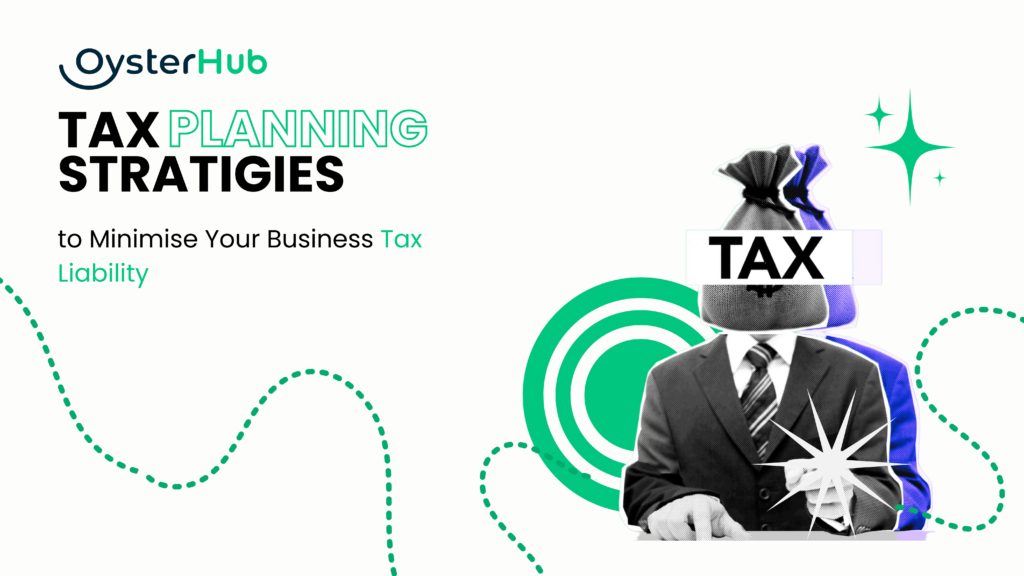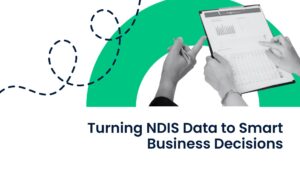Introduction
Picture this: You’re at the helm of your thriving Australian business, navigating the ever-changing currents of the corporate world. While you’re busy steering your ship towards success, there’s a looming iceberg on the horizon – tax liabilities!
How do you ensure your vessel sails smoothly through these treacherous waters? How can you reduce the financial toll those tax obligations impose on your hard-earned profits? Are there secrets to keeping the taxman at bay legally and ethically?
Fear not, fellow captain of industry, for in this blog, we embark on a thrilling voyage through the tax planning strategies uniquely tailored for the Australian business landscape. Grab your compass, hoist the mainsail, and let’s chart a course to minimize your tax liability while keeping the treasure chest full!
I. Understanding Your Australian Tax Obligations

Ever wondered how the type of ship you sail affects your tax planning strategies burden? We’ll delve into various business structures, from solitary pirate ships to bustling trade fleets. But there be more questions: What be the federal and state taxes we must pay on this vast Australian sea, and when must we pay them to avoid Davy Jones’ locker? Well, here are some!
A. Business Structures and Tax Implications in Australia
Starting a Business in Australia: What You Need to Know? In Australia, business structures come in various forms, each carrying distinct tax implications:
- Sole Proprietorship:
This is a one-person show, where you, as the sole owner, report business income and expenses on your personal tax return.
- Partnership:
Here, you team up with others, sharing ownership and dividing business income and deductions on individual tax returns.
- Company Structures (including Pty Ltd):
Companies are separate legal entities subject to income tax on their profits. Personal assets are generally shielded from business debts.
- Trusts:
Trusts are complex, with a trustee managing assets for beneficiaries. Income generated is distributed to beneficiaries and taxed at their individual rates.
B. Federal and State Tax Planning Strategies Obligations
In Australia, businesses face a dynamic tax landscape with federal and state obligations. Let’s break down the key components:
- Goods and Services Tax (GST):
This is the 10% tax that casts its net over most goods and services in the land Down Under. Whenever you purchase goods or services, chances are a portion of your payment goes toward GST.
- Business Activity Statements (BAS):
Think of BAS as your quarterly fiscal report card. Businesses registered for GST and PAYG withholding use BAS to report their earnings and payments. It’s your way of telling the tax authorities what’s been happening in your financial world.
- State Payroll Taxes:
Now, the tax tides can differ depending on which state your ship is anchored. State payroll taxes come into play if you have employees and operate in certain states. It’s an extra layer of tax compliance that regional authorities manage.
- Income Tax Planning Strategies for Businesses:
When it comes to income tax, the waters run deep. For businesses, it’s not just about how much you make; it’s about understanding the intricate web of deductions, credits, and exemptions that can impact your final tax bill. Detailed assessments of your business income and expenses are required to navigate this part of the tax sea.
C. Key Tax Deadlines in Australia For Tax Planning Strategies
Alright, let’s talk about those dates on your financial calendar that you shouldn’t ignore. We’re not just being sticklers here; meeting these tax deadlines is like staying on the right side of the law and avoiding extra costs. In simpler terms, you really want to pay attention to these dates:
- Business Activity Statements (BAS) Due Dates:
If you’re a business owner registered for the Goods and Services Tax (GST), you’ll have regular BAS due dates throughout the year. These dates can vary depending on your reporting period, but they are usually quarterly or monthly. Failing to submit your BAS on time can result in penalties and added interest, which can really eat into your profits.
- Superannuation Guarantee (SG) Payments:
If you have employees, you must make superannuation contributions on their behalf. These contributions should be paid at least quarterly, and the due dates are generally on the 28th day of the month following the end of each quarter. Missing these deadlines can lead to penalties and additional payments you’ll need to make.
- Fringe Benefits Tax (FBT) Return (May 21st):
For businesses providing fringe benefits to their employees, the FBT return deadline is a crucial one. It’s typically due on May 21st each year. Make sure you report all your fringe benefits accurately and on time to avoid penalties.
- Payroll Tax (Monthly/Quarterly):
Payroll tax is administered by each Australian state and territory. The due dates can vary, but it’s often a monthly or quarterly obligation. Keep a close eye on your state’s tax authority website to know your specific due dates.
- Goods and Services Tax (GST) Payments:
For businesses registered for GST, you’ll have regular reporting and payment obligations. The due dates are typically either monthly or quarterly, depending on your GST turnover. Ensure you know your specific GST due dates to avoid any late fees.
II. Tax Planning Strategy Basics for Australian Businesses

Want to savvy the difference between a scallywag and a legitimate tax strategist? Learn how to turn expenses into buried treasure by leveraging deductions and credits. When’s the best time to hoist and declare dividends instead of a salary?
Here are all the differences you need to know of:
A. The Difference Between Tax Avoidance and Tax Evasion
In the Australian tax world, distinguishing between tax avoidance and tax evasion is crucial for ethical tax planning.
Tax Avoidance: Legally arranging your finances to minimize taxes within the law’s boundaries. It’s like taking the most efficient route on a treasure map while playing by the rules.
Tax Evasion: Illegally hiding income or manipulating figures to dodge taxes. This is a no-go in Australia and can lead to serious penalties.
Ethical tax planning strategies encourages tax avoidance—using legal strategies to reduce taxes while staying compliant with the law. It’s about optimizing within the rules, not evading them.
B. Leveraging Deductions and Credits
For Australian businesses, deductions are like financial allies that help reduce tax obligations. They cover various essential expenses:
- Rent: Whether it’s office space, a storefront, or equipment, rent is a legitimate deductible expense.
- Salaries and Wages: Employee-related costs, including wages and salaries, are deductible and keep your business running smoothly.
- Operating Costs: Day-to-day expenses, from office supplies to utilities, can also be deducted.
- Research and Development (R&D) Tax Incentive: The Australian government encourages innovation through the R&D Tax Incentive. It offers tax offsets for eligible R&D expenses, freeing up resources for groundbreaking projects.
- Small Business Capital Gains Tax (CGT) Concessions: To ease tax burdens on asset sales, the Small Business CGT Concessions provide potential discounts on capital gains tax for eligible small business assets. It’s like finding a safe harbor for your profits in the tax sea.
C. Income Shifting and Deferral Planning Strategies in Australia
In Australian tax planning, income shifting and deferral strategies are like strategic moves on a financial chessboard. Let’s delve into these tactics of when and how you receive income and incur expenses.
1. Salary vs. Dividends for Company Owners
As a company owner, you decide how you get paid:
- Salary: A regular paycheck, taxed as you earn. Stable but often with higher personal tax rates.
- Dividends: Like treasure shared with shareholders, usually taxed at a lower rate. Tax-efficient but less predictable income.
Balancing these options is vital, impacting both stability and tax obligations.
2. Timing of Income and Expenses
Managing when you recognize income and incur expenses is like setting your sails for favorable winds:
- Income Timing: Deferring income to reduce current taxes, e.g., delaying client invoices.
- Expense Timing: Accelerating deductible expenses to lower current taxable income, e.g., prepaying business expenses.
Mastering this timing is crucial for efficient financial navigation within Australian tax laws.
D. Maximizing Superannuation (Retirement) Contributions
In the intricate world of Australian tax regulations, staying on the right side of the law is not just prudent; it’s absolutely crucial. Here, we’ll explore the critical aspects of tax compliance and the potential pitfalls to avoid.
1. Importance of Accurate Financial Records
Think of accurate financial records as the lighthouse that keeps your financial ship from running aground. In the context of tax compliance, maintaining precise financial records is not merely advisable; it’s essential. Your financial records serve as the foundation for all your tax reporting and obligations.
2. Common Tax Compliance Issues
Navigating the seas of tax compliance can be challenging, and there are common issues that businesses often encounter:
- BAS Errors: The Business Activity Statement (BAS) is your quarterly financial report card. Errors in BAS reporting can lead to penalties. Ensuring accurate and timely reporting is vital to avoid these financial setbacks.
- Payroll Tax Mistakes: Payroll tax is administered by Australian states and territories. Staying compliant with state-specific payroll taxes can be tricky, and mistakes can result in fines. It’s imperative to understand your state’s payroll tax laws and meet your obligations.
- Fringe Benefits Tax (FBT) Compliance: If your business provides fringe benefits to employees, compliance with FBT regulations is essential. This includes proper reporting and payment of the tax on these benefits. Non-compliance can lead to penalties and unwanted attention from tax authorities.
3. Penalties for Tax Non-Compliance in Australia
Australia takes tax compliance seriously, and failing to meet your tax obligations can result in financial penalties. These penalties can vary depending on the nature and severity of the non-compliance. They may include fines, interest charges, and even legal action in extreme cases.
How Oyster Hub Can Help You Navigate Tax Compliance in Australia?

In the intricate landscape of Australian tax compliance, having a reliable partner by your side can make all the difference. Oyster Hub is your seasoned navigator, here to help you sail through the complexities of tax obligations with ease and confidence. Here’s how we can assist you:
- Accurate Financial Records:
Oyster Hub understands the importance of precise financial records. We offer comprehensive bookkeeping services to ensure your financial records are meticulously maintained, serving as a solid foundation for your tax reporting.
- Expert Guidance:
Our team of tax experts is well-versed in Australian tax regulations and is here to provide you with expert guidance. Whether it’s navigating the nuances of BAS reporting, staying compliant with state-specific payroll taxes, or managing Fringe Benefits Tax (FBT) obligations, we’ve got you covered.
- Compliance Assurance:
With Oyster Hub, you can rest assured that your tax compliance is in safe hands. We’ll keep you updated on changes in tax laws, help you avoid common compliance pitfalls, and ensure your tax obligations are met accurately and on time.
- Penalties Mitigation:
We understand the financial penalties associated with tax non-compliance can be a significant burden. Oyster Hub’s proactive approach minimizes the risk of non-compliance, reducing the likelihood of penalties, fines, or legal action.
- Tailored Solutions:
Every business is unique, and so are its tax needs. Oyster Hub offers tailored solutions that align with your specific circumstances. Whether you’re a sole proprietor, a small business owner, or a larger enterprise, our services are designed to meet your individual tax requirements.
In the world of tax compliance in Australia, Oyster Hub is your trusted companion, guiding you through the intricate channels and helping you reach your financial destination smoothly. With our expertise and commitment to your success, you can set sail with confidence, knowing that your tax compliance is in expert hands.
Book a free consultation call today and get to know more!




















